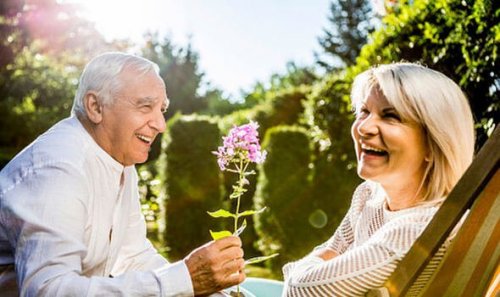Two Exercises to Develop Emotional Intelligence

Emotional intelligence consists of being aware of your emotions and how they affect yourself and others. Thus, it begins with acknowledging yourself and using social awareness to understand the emotional foundations of the things you do.
Half a century ago, intelligence was measured by how fast people could solve logical and analytical problems. However, in 1964, Michael Beldoch shared a different perspective of intelligence based on sensibility and emotional communication and called it emotional intelligence. Since then, this concept has become really relevant.
With the right tools, you can boost your emotional intelligence. In this article, you’ll find two exercises to help you develop your emotional awareness. Ready, set, go!
“Emotional intelligence accounts for 80 percent of career success.”
-Daniel Goleman-

The benefits of managing your emotions
Emotions are fundamental in life. They’re responsible for many of the choices you make and, above all, of how you’re feeling. Even though you might consider yourself a rational person, emotions determine many of your behaviors.
As emotions are also responsible for healthy relationships, emotional intelligence is a tool you can use to improve your bonds with others.
People lose control of their emotions sometimes, especially if they’re related to a difficult moment in their lives, like the death of a loved one, for example. However, emotionally intelligent people are capable of handling negative emotions. Thus, a fundamental skill you must work on is being conscious of your emotions and taking responsibility for them.
Therefore, learning about your emotions will help you understand yourself better and accept what you feel. At the same time, it’ll help you identify emotions in others and improve your bonds with other people.

Two exercises to develop emotional intelligence
1. Self-control
Repressing your emotions or letting yourself get carried away by them aren’t positive things, as they can lead you to overreact or become anxious or depressed. To keep this from happening, you need to work on your self-control.
First, identify what you’re feeling. If you’re angry, figure out why. Is it because of something someone did? Is it because you’re just having a bad day?
It’s also important to meditate on why you’re feeling a certain way. Usually, this will reveal the hidden need that led you to that emotion.
The next step is to accept your emotions. If what you’re feeling is too intense, you can distance yourself from what you believed triggered the emotion. Then, try some meditation, breathing, or relaxation exercises to calm down.
Working on your self-control will help you stop and reflect and keep you from reacting impulsively.

2. Leverage your positive emotions
Positive emotions lead to emotional well-being. Someone who’s motivated, optimistic, and enthusiastic will achieve much more than someone who isn’t. That’s why it’s so important to banish any bad thought from your mind.
Thus, you should write down every time you have a positive emotion and what you were doing at the time or who made you feel that emotion.
Another exercise to develop emotional intelligence is identifying the positive emotions you want to feel and thinking about what you can do to trigger them. This way, you’ll be able to experience them. You can try thinking about the little things in your everyday life that make you feel good.
The more you work on developing your emotional intelligence, the more you’ll be able to accomplish. Try the exercises that we shared here today as the sooner you begin, the better you’ll feel!
This text is provided for informational purposes only and does not replace consultation with a professional. If in doubt, consult your specialist.








